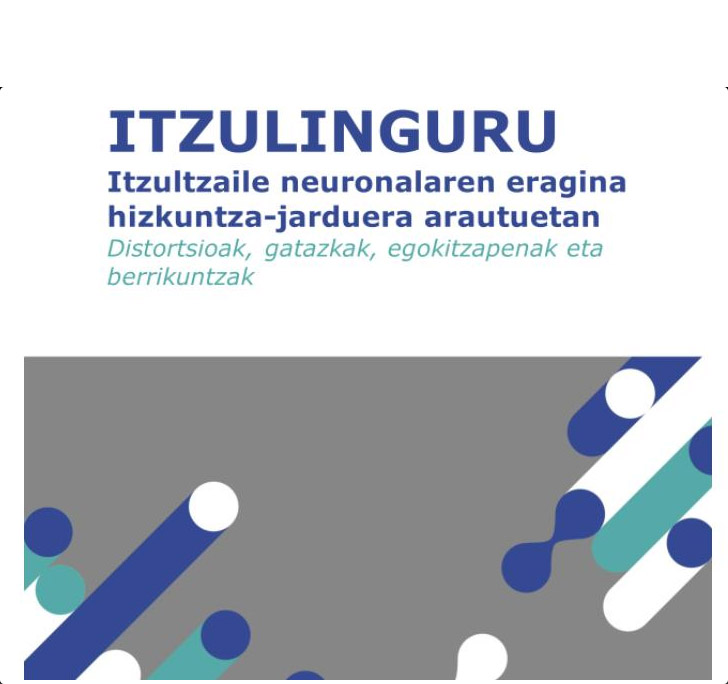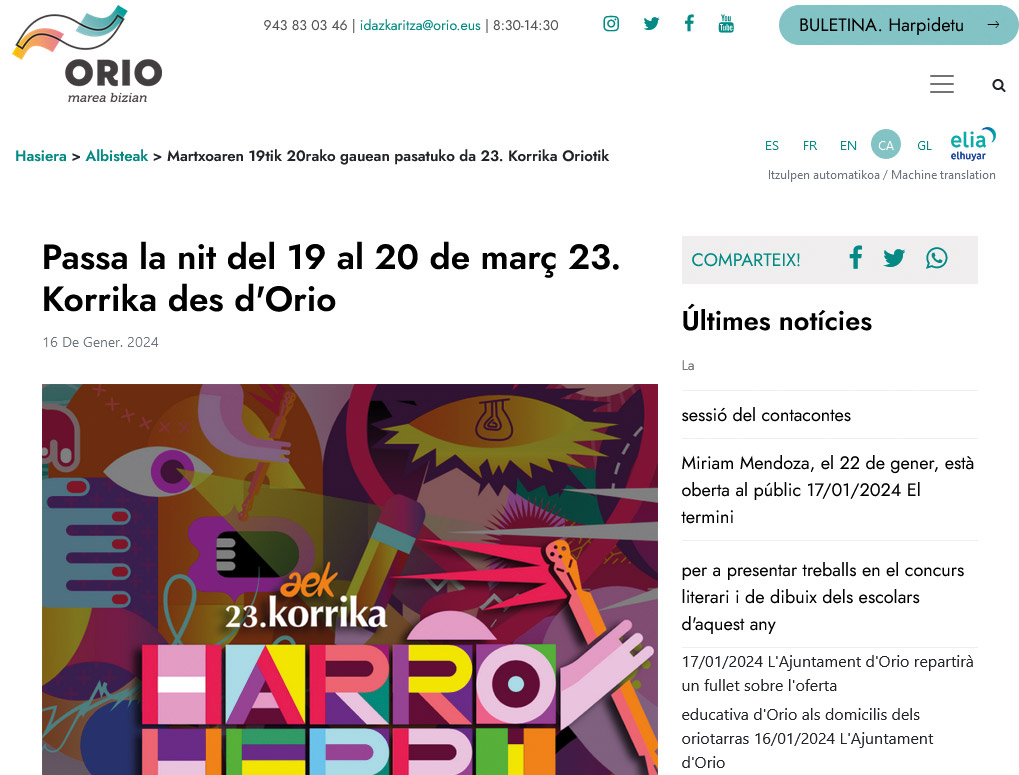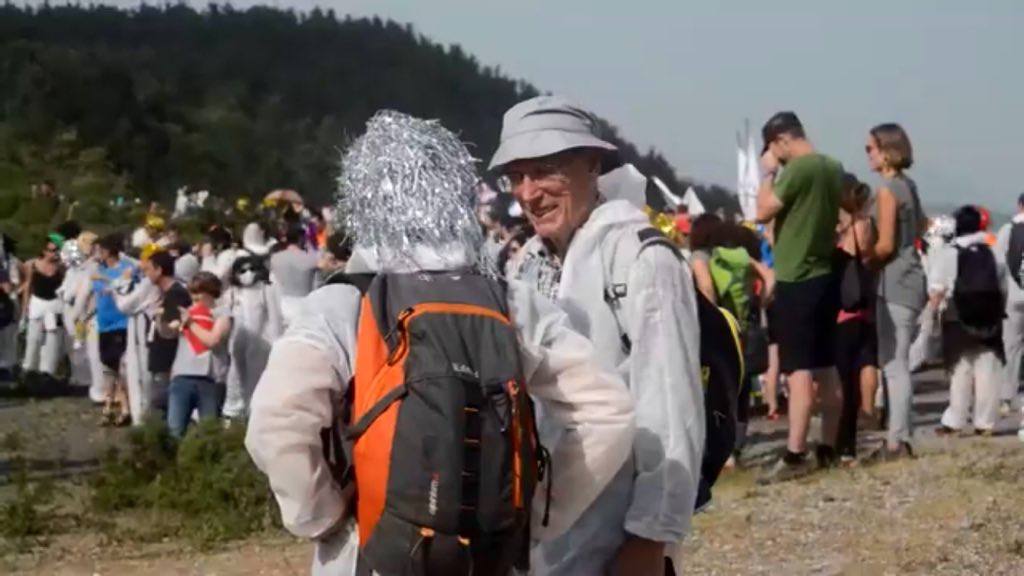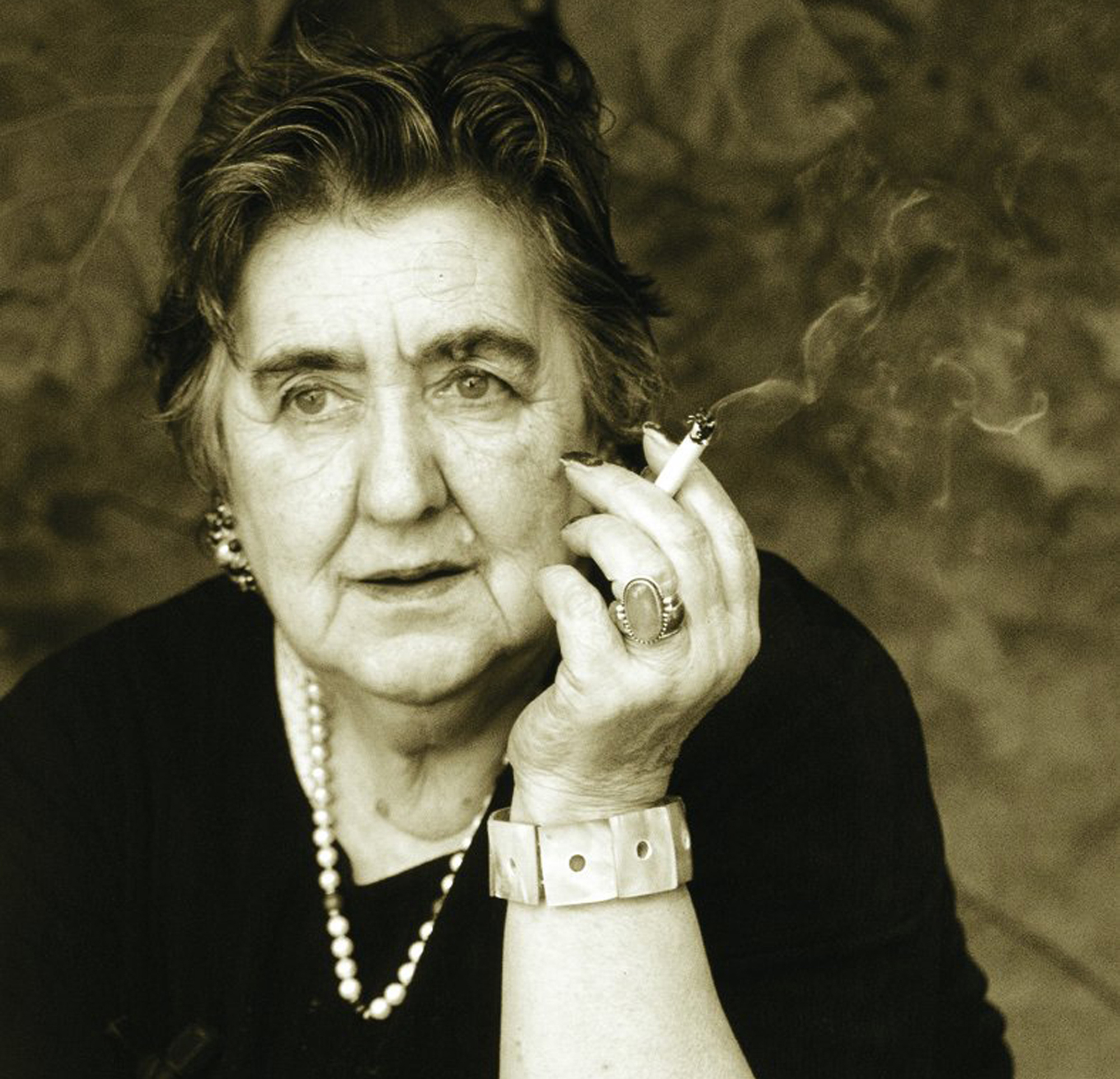Simultaneous translation strategies to support the Basque Country
- For some, the meeting in which there are two Castilian and 20 Euskaldunes is no reason to do so in Spanish. At the Ikastola Aranzadi in Bergara, for example, simultaneous translation tools are used provided by the City Hall, with the teachers themselves being the translators. In the camp organized by the Fracking Ez movement, the FM system was used to make the translations. Irati Majuelo is a translator and has been cited on more than one occasion for simultaneous translations through rumor.
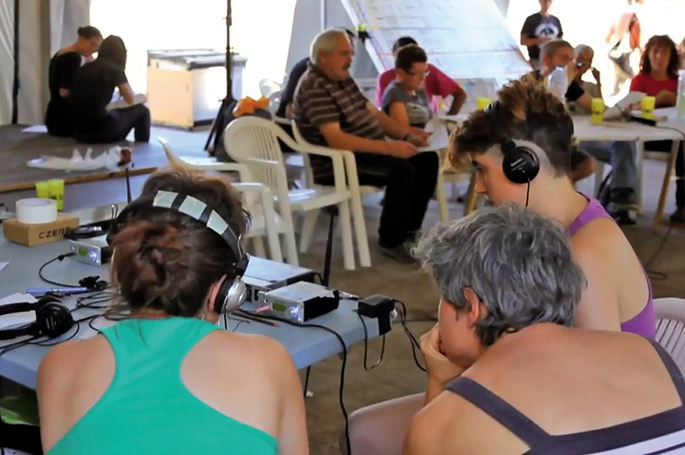
The Fracking Ez movement organized a camp against fracking in July 2015. Seven days of international conferences, workshops and other activities. The language salsa had to be organized. The German movement Fracking Ez also wanted to prepare something similar and they met in Barcelona to hold a meeting in the occupied house Can Masdeu. People from different countries gathered there and a translation system was required for the meeting. There they knew the system that would later lead to the Vitoria-Gasteiz camp.
The Tower Babel of the occupied house was organized by the Coadi, the center that helps people with neurodevelopmental problems. Next to the meeting place, a tool was installed that allowed FM transmission and each participant who needed translation was given a radio device. Each frequency would explain the language to which it is intended to be translated, test the tools and then listen to the translation. As translators, all of them volunteers. Fracking Ez Mikel Otero detected two good things for this system. On the one hand, everyone was able to speak the language they wanted or could, and on the other hand, as they had to return, the talks got slower. The simultaneous translation that had served at that small meeting seemed to them to have to try in the camp.
They knew the BlaBla communication agency, which they asked for help in getting tools and translators. For example, I had between 150 and 200 radios. In the Basque Country, it was possible to convince young people who attended university translation studies. Between the two, the whole simultaneous translation service would be organised for a week. As a number of translations had to be done every day, they wrote all the notes in the panel: 10:00 hours of Basque to Spanish and English; 11:00 hours… At the beginning of each talk or workshop 5 or 10 minutes were devoted to organizing the language account: testing the radios or mobile phone, which also serves this second gadget, looking for frequencies… Translators were not only college students, they were not enough, there was a need for volunteers without special studies, and local people and a lot of people who came from Europe to participate in the camp.
Otero considers that it is not a very sophisticated system, that the necessary resources are not complex. In his view, three basic things are needed: Transmission by FM; group of voluntary translators; and that those who have to speak have a little patience, as translation is instant and it is convenient to act slowly. Otero highlights one benefit: “We could tell everyone that they could speak in whatever language they wanted. In Euskal Herria, what often happens to us is that we tell those who want or can do it in Euskera ‘if you do it in Spanish everyone will understand…’. In July, people would appreciate it if, being an international activity, they had the opportunity to speak in Basque with peace of mind.”
In addition to camping, the Fracking Ez movement has organized hundreds of conferences in Euskal Herria and the radio is not the only way they have used for simultaneous translation. In Txutxumutxu they are made from Basque to Spanish; the Basque talk and the presentation in Spanish images, or vice versa; the Basque talk and small summaries in Spanish sometimes.
Irati Majuelo ronca
Irati Majuelo has just studied Translation and Interpretation. The environment knows this and on more than one occasion it has been asked to make a simultaneous translation. At the university they do not show the technique of rumor, which joins in a corner and translates in a low voice to one or a few, but in daily life, especially in the activity of popular movements, this cheap method is usually used. It was at some university assembly and at the request of Euskal Herriko Bilgune Feminist who made the translations through rumors. Sometimes they have asked him for help instantly and have had to go back to the utopian situation: without knowing what the speaker or the people of the meeting will talk about, without time to supervise the terminology… Other times he does homework. For example, on January 16 he participated in a couple of lectures at the Feminist School organized by Bilgune Feminista. The content was already available to you.
For Majuelo it is important to be in advance with the person(s) to be whispered back to create a space of trust. For example, you will not be able to return everything at the time, but you will be able to give further explanations in the end. We ask him how tolerant rumors feel, if they get uncomfortable, and he answers us. “The awkward thing is to decide whether to make a translation or not, when it is not decided earlier and the issue is put on the table at the same time. That is, to do in Spanish, or to speak in Basque and organize the translation. If you said before that it is in Basque and that there will be some kind of translation system, it is not uncomfortable.” Majuelo says they are used to using rumor in popular movements in Barcelona: “They have the habit of using Catalan more than Euskera, here we are more accustomed to ceding”.
Translators at Ikastola Aranzadi
The Bergara City Hall has a classic system of simultaneous translation, used in most days. Given the success of the system that was rented regularly, they decided to buy a team. The price of housing was about 10,000 euros. Steppes an Plazaola, technician of the Basque Service of the City Hall, tells us that in the city hall they are very comfortable with the tool, also in the Ikastola Aranzadi. The latter is the one that most uses this translation system over the year, about 30 times a year. The City Hall offers free tools to the agents of the town, the translator has to find himself. At Ikastola Aranzadi, for example, it is the teachers who do the translations, which are meetings of parents, which is a talk from someone who comes from outside… Plazaola believes that the work done by the teachers is wonderful, because, for example, translating a conference is not easy.
The Bergara City Hall has a box of about 20 headphones and when you need more you ask the City Hall of Ordizia. However, headphones are rarely needed for more than 20 erdaldun. The use of this system, according to Plazaola, has meant one thing: “Before it had to be justified to speak in Basque, it seems to be a lie, but if at the meeting of 20 they did not know two in Basque there was always a justification to do so in bilingual. Sometimes it was also justified to do it in Spanish: ‘They also have to understand, because if they do, it will last…’. Now the Spanish says ‘oysters! All of this is organized by me (or by a few)!’ If a system of this kind is not used, the subject of language is not made visible.”
Anton Txekhov, Raymond Carver eta Alice Munroren ipuingintzari buruzko mahai-ingurua egin dute Iker Sancho, Harkaitz Cano eta Isabel Etxeberria idazle eta itzultzaileek, Ignacio Aldecoa zenaren ipuin literarioaren jaialdian, Gasteizen. Beñat Sarasolak gidatuta, autore... [+]
I have experienced two very different linguistic experiences in two southern peoples in recent weeks. One at a conference organized by a public institution of a Basque people and another at a school assembly. If we were at the conference more than 80 people, I would say that 90%... [+]
Ekain honetan hamar urte bete ditu Pasazaite argitaletxeak. Nazioarteko literatura euskarara ekartzen espezializatu den proiektuak urteurren hori baliatu du ateak itxiko dituela iragartzeko.












